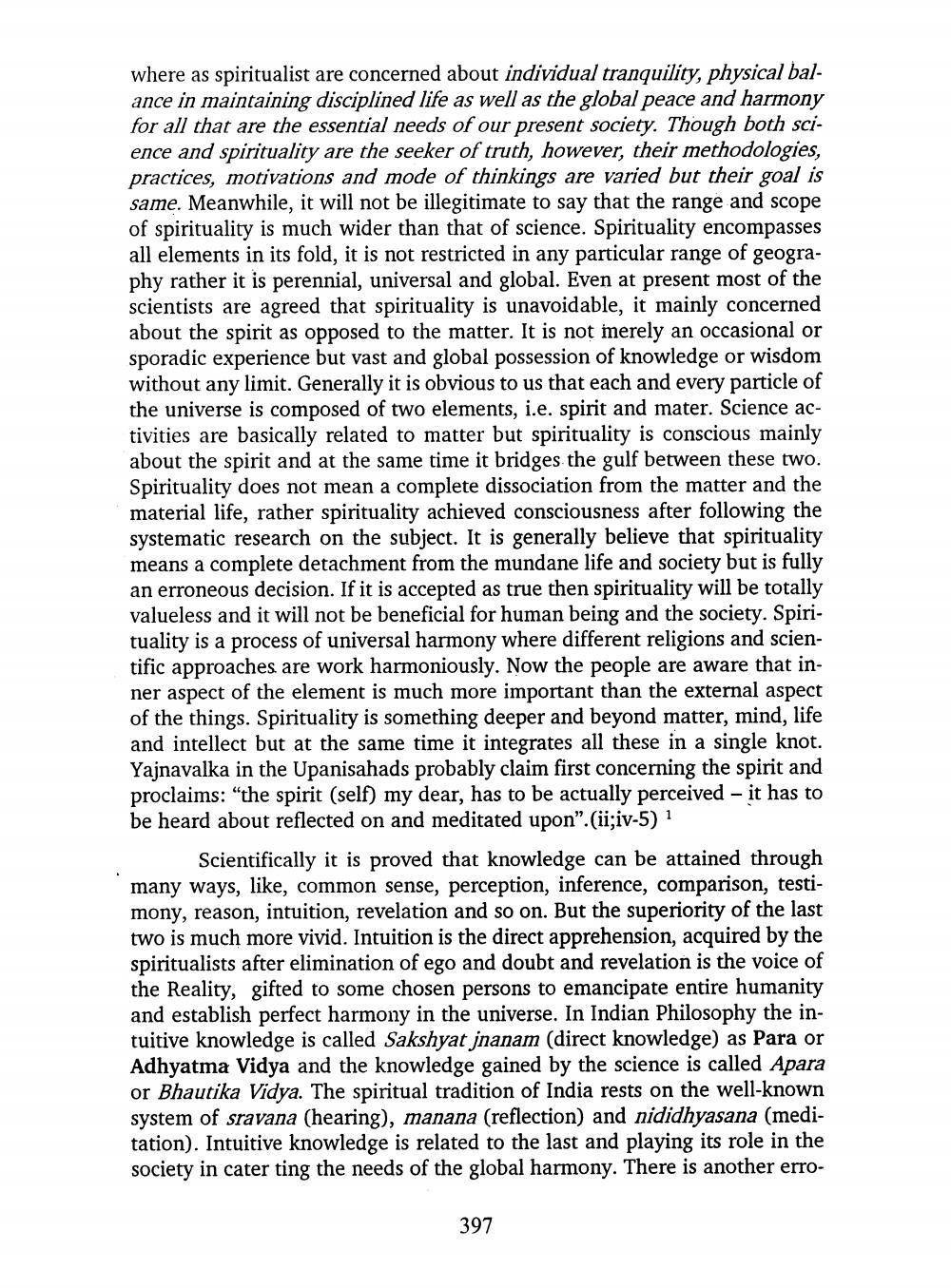________________
where as spiritualist are concerned about individual tranquility, physical balance in maintaining disciplined life as well as the global peace and harmony for all that are the essential needs of our present society. Though both science and spirituality are the seeker of truth, however, their methodologies, practices, motivations and mode of thinkings are varied but their goal is same. Meanwhile, it will not be illegitimate to say that the range and scope of spirituality is much wider than that of science. Spirituality encompasses all elements in its fold, it is not restricted in any particular range of geography rather it is perennial, universal and global. Even at present most of the scientists are agreed that spirituality is unavoidable, it mainly concerned about the spirit as opposed to the matter. It is not merely an occasional or sporadic experience but vast and global possession of knowledge or wisdom without any limit. Generally it is obvious to us that each and every particle of the universe is composed of two elements, i.e. spirit and mater. Science activities are basically related to matter but spirituality is conscious mainly about the spirit and at the same time it bridges the gulf between these two. Spirituality does not mean a complete dissociation from the matter and the material life, rather spirituality achieved consciousness after following the systematic research on the subject. It is generally believe that spirituality means a complete detachment from the mundane life and society but is fully an erroneous decision. If it is accepted as true then spirituality will be totally valueless and it will not be beneficial for human being and the society. Spirituality is a process of universal harmony where different religions and scientific approaches are work harmoniously. Now the people are aware that inner aspect of the element is much more important than the external aspect of the things. Spirituality is something deeper and beyond matter, mind, life and intellect but at the same time it integrates all these in a single knot. Yajnavalka in the Upanisahads probably claim first concerning the spirit and proclaims: "the spirit (self) my dear, has to be actually perceived - it has to be heard about reflected on and meditated upon”. (ii;iv-5) 1
Scientifically it is proved that knowledge can be attained through many ways, like, common sense, perception, inference, comparison, testimony, reason, intuition, revelation and so on. But the superiority of the last two is much more vivid. Intuition is the direct apprehension, acquired by the spiritualists after elimination of ego and doubt and revelation is the voice of the Reality, gifted to some chosen persons to emancipate entire humanity and establish perfect harmony in the universe. In Indian Philosophy the intuitive knowledge is called Sakshyat jnanam (direct knowledge) as Para or Adhyatma Vidya and the knowledge gained by the science is called Apara or Bhautika Vidya. The spiritual tradition of India rests on the well-known system of sravana (hearing), manana (reflection) and nididhyasana (meditation). Intuitive knowledge is related to the last and playing its role in the society in cater ting the needs of the global harmony. There is another erro
397




